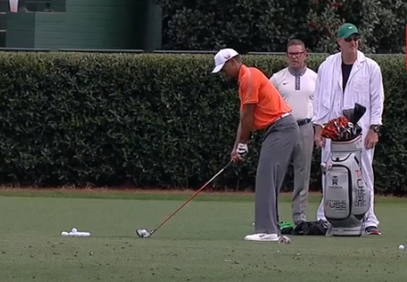 A relatively new and pervasive phrase has been circulating amongst athletes, coaches, and the performance community: focus on the process. Does a player swing a club in order to focus on the process of swinging? Or does he swing it in order to advance the ball toward a desired target? Is the game about hitting a ball, or the twelve-second routine that precedes it? Does a swimmer focus on the movement of his arms, or does he just swim? Does a soccer player focus on the process of kicking, or does he just kick? The individuals who recommend focusing on the process are the very same ones who recommend not over-thinking, and just playing. So on the one hand a player should just play, yet on the other hand he should focus on the process? Is it a wonder that athletes seek psychological assistance? Yet it is often the psychologists that foster the confusion from which these athletes suffer. Children will often just play. But none of them focuses on the process. And no adolescent who ever fell in love with any game decided to pursue it as a career so as to focus on the process.  Be that as it may, for purposes of this conversation, I am not advocating a focus on the process, or a focus on the result. I seek only to unravel the full complexity of the logic before us so that we may examine it in full and unassuming detail. Is the performance community simply illogical and malevolent for creating such a phrase? Certainly not. For, in some convoluted fashion, this advice seems to be reasonable, if viewed from a particular perspective. And what is this perspective? This phrase is not a kernel of knowledge, nor is it a great pearl of wisdom. It is a reaction. A reaction to the anxiety of the athlete. Specifically, it is a reaction to help ease the anxiety of the athlete. Why is the athlete anxious? Because he focuses on results. The logic, thus, proceeds as follows: if we know that a focus on results leads to anxiety, and our aim is to lessen the athlete’s anxiety, then we must shift his focus away from the results and toward the process in order to produce a given result. It sounds reasonable and logical, from this perspective. Another example of how clever the mind can be. But there is a problem which few seem to understand. If one’s aim, one’s reason, one’s intention, and one’s goal in focusing on the process is to get a particular result, then he is not focused on the process at all. He is simply using this as a clever pretence in order to attain a particular result. And, therefore, does his ultimate and fundamental focus not remain squarely upon the result? Does it, therefore, not make sense that despite this clever new trick that the athlete continues to writhe in his own skin? Problems do not go away when we find a solution for them. They go away when we stop creating them. The athlete’s anxiety is not an ailment in need of treatment. It is a disease in need of understanding. Kapil Gupta, M.D. Siddha Performance Ultimate Freedom. Ultimate Performance. www.siddhaperformance.com [email protected]
Andrew
22/4/2013 01:20:36 am
So unless you are truly playing the game for the love of, or sake of, playing you are “playing” with some anxiety, distraction? But if we seek or try to “play” the game for some end result (winning or to rid ourselves of the anxiety) we are not truly playing. mmm 22/4/2013 11:31:57 am
Thank you for your comment, Andrew. The game seems to have become a vehicle to make one feel whole. It seems to have become an ulterior motive. The same way that THE PROCESS has become an ulterior motive. Comments are closed.
|
Archives
June 2019
|
Proudly Supported By
Copyright © 2011 - 2018 Pro Tour Golf College
Website Managed By Golf Performance Media
All Rights Reserved
Website Managed By Golf Performance Media
All Rights Reserved

 RSS Feed
RSS Feed



